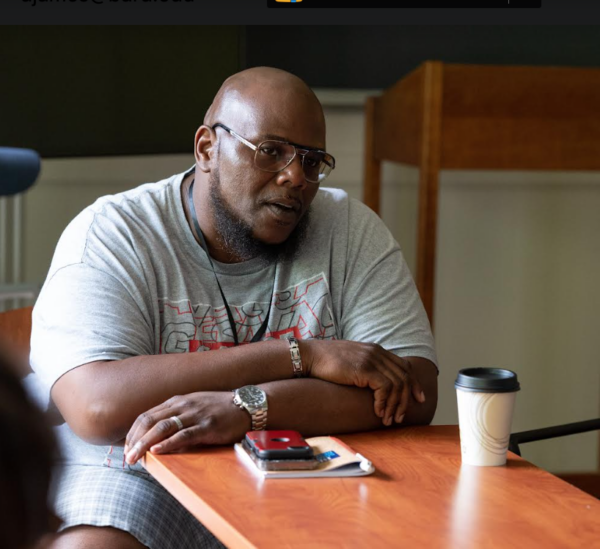For BPI, every month is a month to study and celebrate Black History. As Bard College students, BPI students become scholars in their own right, not just absorbing course material but producing vital contributions to the literature. This February we asked BPI alumni what it meant to study and *do* Black History as college students. We’ve shared some of those reflections along with 28 Senior Project titles that explore themes rooted in Black history. This reflection by alumnus Demetrius James, Program Director of the Bard Microcollege for Just Community Leadership is part of that series.

Studying Black history as a college student – especially for my Bard Senior Project, which was a survey of Richard Wright’s work and how it shaped the urban fiction novel genre of African American Literature – was a defining moment in my life. I say this because before college, studying Black History in school consisted of highlighting the work of an African American civil rights figure during Black History month. However, in college, I learned about the oppressive systems used to subjugate Black people in the United States. Through this, I did not highlight the who’s who of the Civil Rights era, rather I was exposed to the systems that created the necessity for the Civil Rights Movement. This gave me a better sense of not only what African Americans were up against, but I learned of what my own parents and family had to endure and thus gained a new perspective on what shaped their perspectives.
For example, I can recall many long drives and times spent with my dad when used to talk about how he grew up on a farm in Florence, South Carolina, being one of many children to sharecropping parents. As a child, I created the image of my dad being a boy running around the farm in a pair of old dungarees, frayed at the bottom, t-shirt and a straw of hay hanging from his lip. My dad’s recollection of his farm days was always steeped in the importance of hard work and not being lazy. From that, I connoted sharecropping as a term interchangeable with farming. I considered my father and his family as farmers.
However, what my dad kept from me, and what elementary and high school did not explain to me, was how sharecropping was a system adopted from the slave plantations, where “former” slave owners hoarded the profits of Black families’ agricultural labor, further keeping them in poverty and debt for generations. As a college student, that defining moment was meeting my family as historic figures, meeting granddad and grandma as sharecroppers. The history of sharecropping gave me some insight into what my father experienced and shaped the person he was. Through learning about Black history, I learned about my family from a different and important perspective.
Demetrius James ’17 is an actor, writer, and educator who was born and raised in the Bronx, New York. After studying literature and the humanities, his interest in agriculture in urban areas was piqued after working in the Bard garden at Fishkill Correctional Facility. Demetrius is currently the Program Director at the Bard Microcollege for Just Community Leadership in Harlem.



